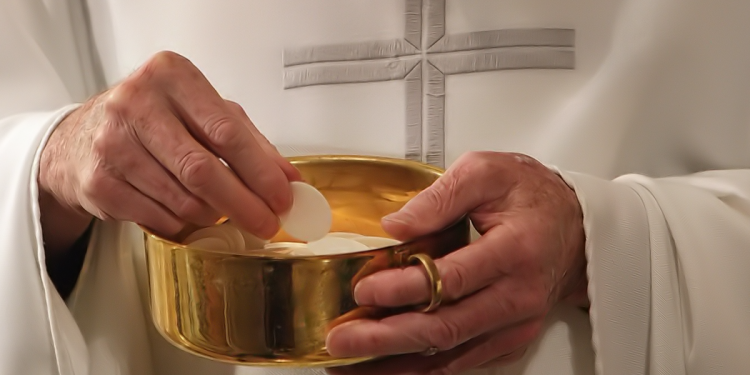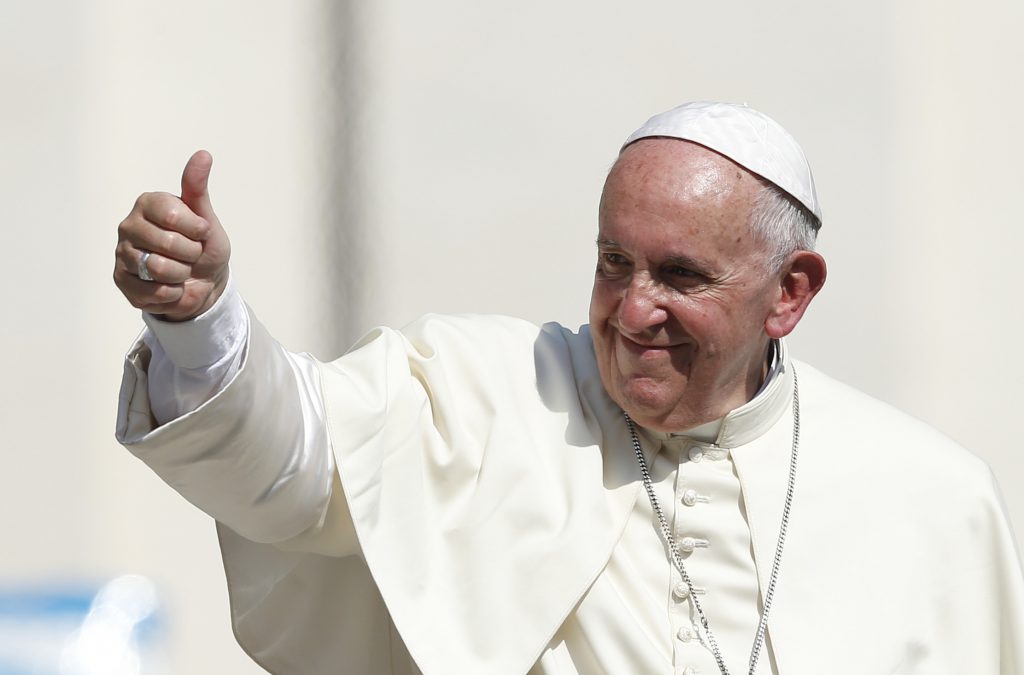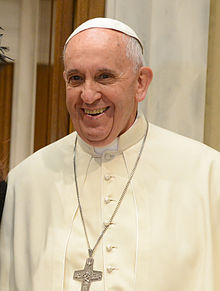Biden & Proper Preparation for Receiving the Eucharist

Joe Biden and the Question of the Proper Preparation for Receiving the Eucharist
The American bishops, or more accurately a committee among the bishops, are preparing a document on the Eucharist and its importance in the life of the Church. And it should be coming out within the next couple of months or so to be presented at the USCCB this fall. In my opinion, it couldn’t come at a better time. With politicians like Joe Biden, Nancy Pelosi, Lisa Murkowski, Susan Collins (notice, I chose two R’s and two D’s! This is not about politics, folks!) who publicly declare their Catholicism and yet advocate for the murder of the most vulnerable human beings among us—the unborn—a clear statement from the bishops may well be one way among many for we Catholics to get the word out: a Catholic can never in any circumstance whatsoever, advocate for what has become the slaughter of over 62 million pre-born babies in what used to be considered “the sanctuary” of their mothers’ wombs in the United States of America. At least, a Catholic cannot do so and remain in full communion with Jesus Christ in his Church.
And when it comes to these politicians receiving the Eucharist, Pope Francis put it as bluntly and plainly as it can be stated on his return flight from Slovakia just a few days ago where he declared: “Abortion is murder. The Church cannot change its position.” And a little later His Holiness explained that the Eucharist is “not a prize for the perfect… it is the presence of Jesus in the Church and in the community… those who are not in the community cannot take Communion… because they are not baptized or have drifted away.” According to Pope Francis, this is the state of the situation when we consider politicians who are advocating for and voting for abortion. They are “not in the community” and therefore should not receive communion. It really is that simple. Catholicism 101 tells us we have to be in communion with Jesus, or as Pope Francis said, be in the community, as basic preparation for receiving the Eucharist that is a sign of that communion that necessarily must first exist in the life of the Christian in order to receive communion. And this is not to mention the fact that the Eucharist becomes the efficacious gift of grace to the Christian that makes his continued communion with Christ possible.
The Good News and the Heart of the Matter
The good news is that Catholics world-wide—obedient Catholics who obey the precepts of the Church, anyway—are as unified as it gets when it comes to this subject. “Of course, someone who is in mortal sin cannot receive communion,” they will say. But, at the same time, among well-meaning and well-catechized Catholics there is controversy as well. And the controversy concerns not so much who ought and ought not receive communion; rather, it is who should be forcibly refused communion in the Catholic Church. This is an entirely different matter, folks. And the controversy finds it root in Canon 915 of the Code of Canon Law:
Those who have been excommunicated or interdicted after the imposition or declaration of the penalty and others obstinately persevering in manifest grave sin are not to be admitted to holy communion.
The real question involves the latter part of the canon: “… others obstinately persevering in manifest grave sin are not to be admitted to holy communion.” Many interpret this canon to involve more than just declaring a person “obstinately persevering in manifest grave sin” ought not receive communion. And they see it as more than merely informing a person that if he is in a state of mortal sin, he commits the sin of sacrilege if he does receive communion. And, of course, both of these are true statements and rooted in divine law in the Church—a divine law that cannot change.
… that sacramental confession, when a confessor may be had, is of necessity to be made beforehand, by those whose conscience is burdened with mortal sin, how contrite even soever they may think themselves. But if anyone shall presume to teach, preach, or obstinately to assert, or even in public disputation to defend the contrary, he shall be thereupon excommunicated (Council of Trent, Session 13, Decree Concerning the Most Holy Sacrament of the Eucharist, Canon 11).
But again, the real question at hand is this: could or even should the local pastor refuse communion to a person he knows to be “obstinately persevering in manifest grave sin?” I would argue that if Canon Law means anything, “could” or “should” would at least be possible interpretations of the law represented in Canon 915; and therefore, the pastoral action of refusal would be a possible action a Catholic pastor could legitimately take. Of course, this must be subject to the interpretation of the Supreme Legislator (the pope).
And I must say, on a personal note, I believe 1. This is a needed direction for the Church in our present situation in the United States. And 2. Joe Biden would be the perfect candidate for this scenario. He is Catholic. He claims to be devout. And yet, he publicly supports abortion, engages in propaganda campaigns in favor of abortion, has created law by way of executive action that has resulted and will result in hundreds, if not thousands of actual abortions, and actively fights against any limitations even attempted to be placed upon this grave evil.
Moreover, in Biden’s case we have the added fact that he once at least held to the painfully incoherent notion of, “I believe life begins at conception, but I would not force my religious belief on anyone else.” In other words, he used to at least personally understand the scientific fact that a human being is a human being from the moment of conception. Beside the obvious point that abortion is not a matter of “religious belief,” or as I like to say, “thou shalt not kill is not a Catholic only club!” Beside the point that Abortion is a matter of basic human rights that bind all human beings. Beside those crucial and “inconvenient truths” and the fact that Mr. Biden’s former position was absurd as well as immoral. Now, he has taken his position further into the abyss by publicly rejecting even the basic, scientific fact that human life begins at the moment of conception. And he is not shy about proclaiming that he disagrees with the Catholic Church on this. Science? The Church? Who cares! I say…
Wow!
Yes, there are two roads we can go by
So here is the problem: many argue that if there is a case where canon 915 ought to be employed, Mr. Biden’s case fits the bill. And there are others including and beyond the four examples I cited above. But from a strict reading of the canon, I don’t know how anyone could disagree. Just considering Mr. Biden for a moment. He is one of the clearest cases anyone is ever going to find where you have a Catholic who is “obstinately persevering in manifest grave sin.”
Why shouldn’t he be refused communion? Seems simple, right?
Well, it’s not that simple. There are actually at least “two roads we could go by” in this matter to quote Led Zeppelin’s Stairway to Heaven. The Church would certainly be within her right and authority to publicly refuse communion to someone who is “obstinately persevering in manifest grave sin.”
But all involved in this decision must also consider that a strict interpretation of Canon 915 was not the direction the early Church took. St. Paul, for example, never refused anyone communion. He took the more catechetical and evangelistic approach advocated by Pope Francis and the Church in general for most of her history. St. Paul catechized the faithful, teaching them both the beauty and power of the Eucharist, but also warned them of the gravity of the situation when it comes to the proper preparation for receiving communion:
Whoever, therefore, eats the bread or drinks the cup of the Lord in an unworthy manner will be guilty of profaning the body and blood of the Lord. Let a man examine himself, and so eat of the bread and drink of the cup. For anyone who eats and drinks without discerning the body eats and drinks judgment upon himself. That is why many of you are weak and ill, and some have died. But if we judged ourselves truly, we should not be judged (I Cor. 11:27-31).
Notice, St. Paul did not say, “Refuse those who are unworthy…” No. He warns the “unworthy” not to receive, even going so far as to tell them that both their physical lives and spiritual souls are on the line here. The warning can’t get any stronger. But there was never even a hint of “refuse this one…” What we find in the text is, “Let a man examine himself…” St. Paul aids in the examination, but the ultimate decision seems to have been left to the examinee.
Final Thoughts
There are many more considerations when it comes to what is ultimately going to be—and is—as pastoral matter in the Church to be decided by the Church’s pastors. One has to consider the inherent problems of politics that enter into the fray. As Pope Francis also said in the above-mentioned article, when the Church gets away from her pastoral mandate, she invariable falls into the ugly world of politics. A wide application of a strict interpretation of Canon 915 breeds the real possibility of at least appearing political. “Why is this guy refused, but that guy isn’t?”
Oy vey!
One also has to consider the possibility of the Eucharist being weaponized along those same lines. It doesn’t get much uglier than that.
But for me, ultimately, in considering this question I’m afraid the more catechetical approach of St. Paul as expressed in II Cor. 1:24 (and again, in I Cor. 11:27-31), seems much closer to that of Pope Francis (and our recent popes I might add), than is my approach and the approach of a strict reading of Canon 915.
Not that we lord it over your faith; we work with you for your joy, for you stand firm in your faith.
St. Paul seems to have advocated for, as I said, a more catechetical and evangelistic approach that encouraged, challenged, and even rebuked the faithful, while falling short of resorting to refusing them communion, even in cases, like in Corinth, where there were a plethora of grave errors being communicated, and grave sins being committed. One could take his proverbial pick! In fact, the one time we see St. Paul appearing to resort to censuring even a single Corinthian, it involved a public scandal regarding a man sleeping with his own stepmother (I Cor. 5:1-5; II Cor. 7:8-10). But that goes beyond the scope of this article.
This does not mean that a strict interpretation of Canon 915 is contrary to Scripture or the teaching of St. Paul. By no means! Differing disciplines in the Church are sometimes required for different times. But all of the above and more we could talk about are some of the reasons why I personally do state my opinion that in these times of public dissent against essential, infallible teachings of the Church of such gravity as abortion, perhaps we need public censure. Public dissent perhaps needs public censure. But I also happily proclaim the fact that the decisions on these matters, including the one the bishops are writing on even as we speak, are not mine.
Deo gratias!
And perhaps most important of all to this discussion is this: No matter which way the Church through her pastors moves pastorally, the dogmatic facts do not and cannot change. Anyone, whether it be the man occupying the Oval Office, or the men and women occupying the seats of power in Congress, etc., it makes no difference. Anyone who advocates for, votes for, and/or even creates policy in our nation that facilitates actual abortions, that man or woman is not in full communion with the Church (see Lumen Gentium, 14). I am not the judge of their souls. God is. But, of course, we must judge actions, as Jesus said in John 7:24. And we are compelled by charity and by mercy to proclaim the truth that these and all who also advocate for the killing of innocent children are not in full communion with Christ in his Church (see Lumen Gentium, 14), which means, ipso facto, their souls are in grave danger.
We must pray for the souls of all who advocate for what Pope Francis so bluntly and powerfully declared to be the “murder” of pre-born children. May God have mercy on us all.





